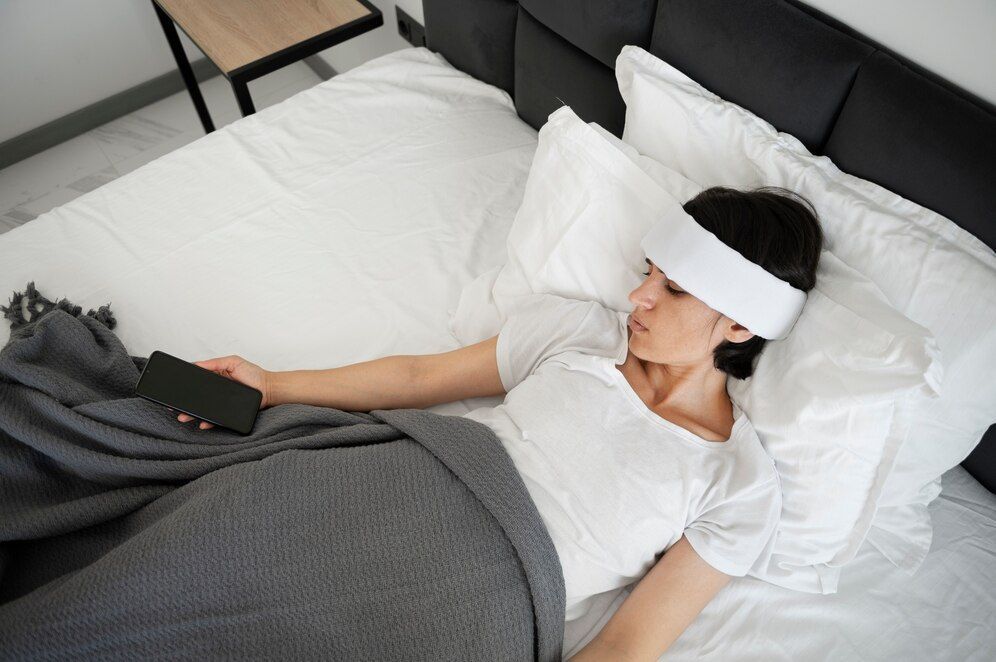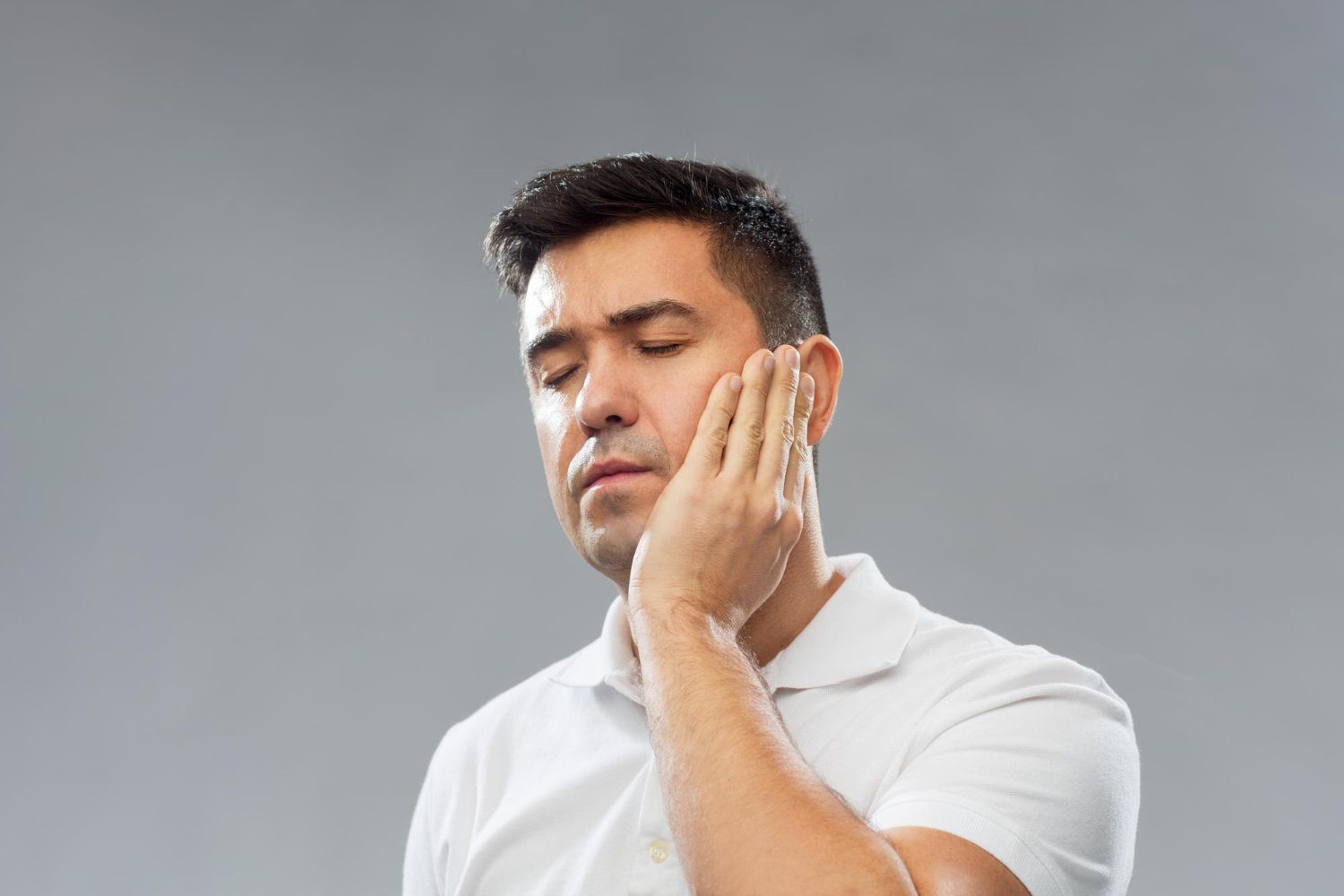Improve Your Health by Treating Sleep Apnea

Sleep apnea is a common sleep disorder affecting millions of people worldwide. In Meridian and across Idaho, more and more people are realizing the need to address this issue. Sleep apnea occurs when a person's breathing is interrupted during sleep, causing them to temporarily stop breathing, wake up gasping for air, and then fall back to sleep. These breathing interruptions can happen hundreds of times per night, significantly impacting the person's quality of life and overall health.
The Center for Sleep Apnea and TMJ in Meridian offers effective solutions and innovative treatments for sleep apnea, snoring, TMJ disorders, and head and facial pain. With expert care, people suffering from sleep apnea can regain control of their lives, improve their overall health, and finally enjoy a full night of sound sleep.
Addressing sleep apnea is crucial not only for a comfortable sleeping experience but also for maintaining overall health. Untreated sleep apnea has been associated with various health risks, which can severely affect the quality of life. Some of these risks include high blood pressure, heart disease, stroke, diabetes, depression, and poor cognitive performance. Moreover, sleep apnea increases the likelihood of accidents due to fatigue, as it impairs the ability to concentrate and maintain alertness during daily activities.
In this blog, we dive deeper into the importance of addressing sleep apnea for overall health, the risk factors for sleep apnea, and the various treatment options available at the Center for Sleep Apnea andTMJ in Meridian. By understanding the reasons to treat sleep apnea, individuals afflicted with this disorder can take the necessary steps to manage their symptoms and improve their overall well-being.
The Importance of Addressing Sleep Apnea for Overall Health in Meridian
Understanding Sleep Apnea and Its Impact on Health
Sleep apnea is a prevalent sleep disorder characterized by repeated pauses in breathing during sleep. These pauses can last from a few seconds to more than a minute and occur when the muscles in the back of the throat fail to keep the airway open, despite the individual's effort to breathe. The consequences of untreated sleep apnea extend beyond restless nights and fatigue; it can also lead to more severe health problems, affecting the cardiovascular, endocrine, and nervous systems.
1. Cardiovascular Risks Associated with Sleep Apnea
Sleep apnea is closely linked to various cardiovascular complications. The sudden drops in blood oxygen levels that occur during sleep apnea increase blood pressure, strain the cardiovascular system, and can lead to the following conditions:
- Hypertension: The constant sleep disruptions and lack of oxygen in the blood can cause high blood pressure, increasing the chances of heart disease.
- Heart Disease: Sleep apnea is associated with an increased risk of heart attack, heart failure, and abnormal heart rhythms (arrhythmias).
- Stroke: Those with untreated sleep apnea are more likely to suffer from strokes due to the strain put on blood vessels and reduced oxygen reaching the brain.
2. Endocrine Issues and Sleep Apnea
Untreated sleep apnea also contributes to endocrine-related health problems:
- Type 2 Diabetes: Sleep apnea is prevalent among those with type 2 diabetes, as the disorder may impair glucose metabolism, and the frequent night awakenings may worsen insulin resistance.
- Hormonal Imbalances: The continuous interruptions in sleep can lead to hormonal imbalances, potentially resulting in weight gain and reduced libido.
3. Cognitive and Mental Health Implications
Sleep apnea has been linked to numerous cognitive and mental health repercussions, including:
- Cognitive Dysfunction: The lack of restorative sleep affects cognitive performance, leading to problems with memory, learning, and decision-making.
- Depression and Anxiety: The constant sleep disruption caused by sleep apnea can result in mood disorders such as depression and anxiety.
- Fatigue-related Accidents: Daytime sleepiness due to sleep apnea increases the risk of accidents, such as drowsy driving or workplace injuries, which can have profound consequences.
Risk Factors and Warning Signs of Sleep Apnea
Several risk factors make some individuals more susceptible to developing sleep apnea. These include obesity, family history, smoking, alcohol consumption, and having a small jaw or a large neck circumference. Recognizing the warning signs of sleep apnea is essential, as early intervention can significantly reduce the associated health risks. Some common symptoms to watch out for include:
- Loud, chronic snoring
- Gasping or choking during sleep
- Excessive daytime sleepiness
- Morning headaches
- Difficulty concentrating or irritability
- Restless tossing and turning during sleep
Treatment Options for Sleep Apnea at the Center for Sleep Apnea and TMJ in Meridian
The Center for Sleep Apnea and TMJ in Meridian is dedicated to providing safe, effective, and cutting-edge treatment options for individuals suffering from sleep apnea, snoring, TMJ disorders, and other head and facial pain. Treatment options available include:
1. Continuous Positive Airway Pressure (CPAP) Therapy
CPAP is a standard treatment for sleep apnea that involves wearing a mask connected to a device that delivers a continuous flow of air. This steady air pressure keeps the individual's airway open, preventing sleep apnea episodes and allowing for uninterrupted sleep.
2. Oral Appliance Therapy
Oral appliance therapy is a less invasive alternative to CPAP, employing a custom-made appliance worn during sleep. The device repositions the jaw and tongue to keep the airway open and reduce sleep apnea symptoms.
3. Lifestyle Modifications
In conjunction with medical treatments, lifestyle changes can help alleviate symptoms and improve the outcomes of sleep apnea therapy. Losing weight, quitting smoking, limiting alcohol consumption, and practicing good sleep hygiene are essential aspects of managing sleep apnea.
Conclusion:
If you suspect that you or a loved one might have sleep apnea, it's crucial to seek help promptly. The Center for Sleep Apnea and TMJ in Meridian offers top-level expertise and comprehensive treatment options to assist you in regaining control of your sleep and health.
Don't let sleep apnea go undiagnosed; reach out to The Center For Sleep Apnea and TMJ now, and together, we can pave the way to a healthier, more restful future. Schedule an appointment and start your
sleep apnea treatment in Meridian, ID,
today!










